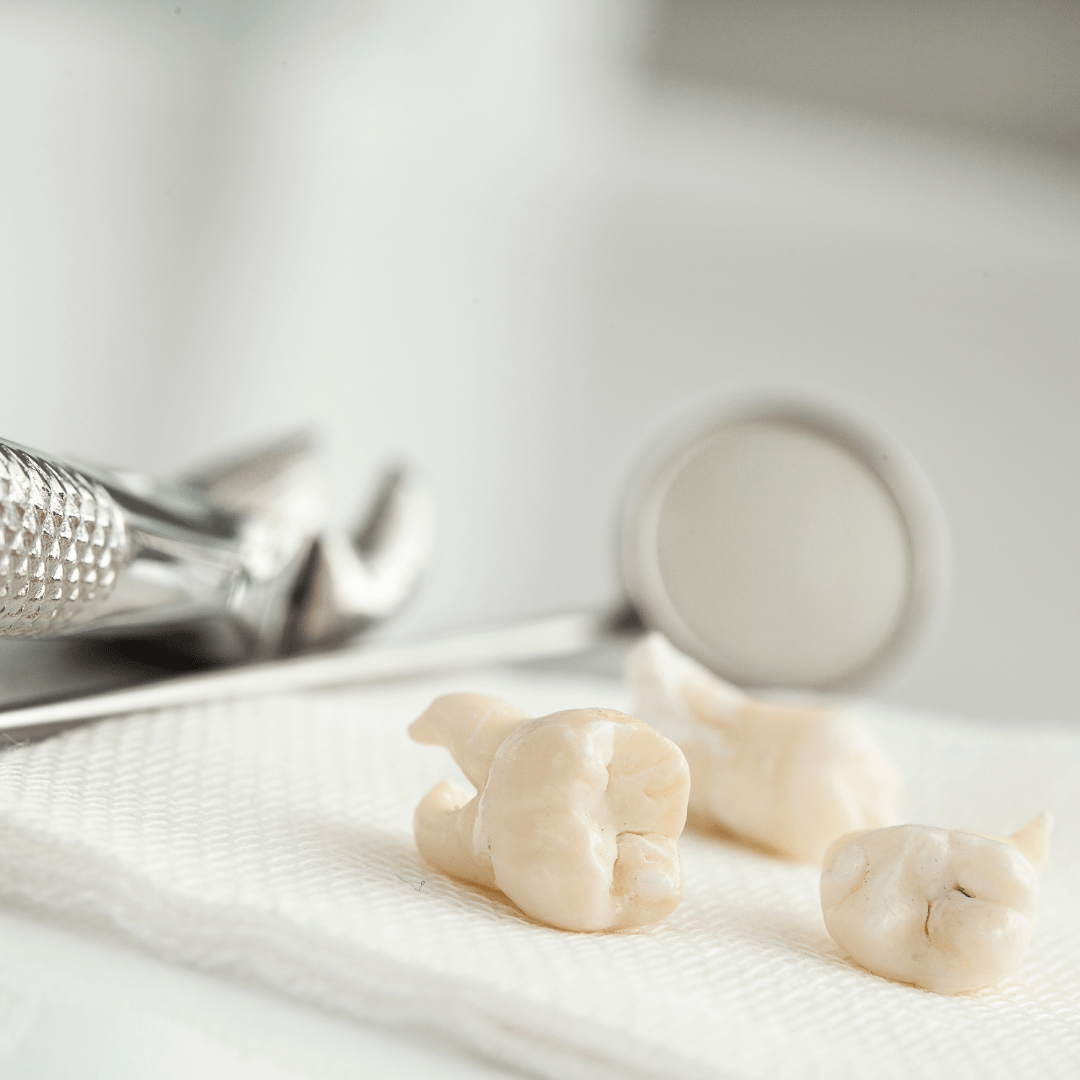
Wisdom teeth removal
Our wisdom teeth are the third set of molars that appear between the ages of 17 and 25, and the procedure to remove them is called wisdom teeth removal surgery. Almost all of us have or will have to have them removed (not everyone has wisdom teeth, but most people have between one and four).
A dentist will recommend this procedure if an examination and X-rays reveal that your wisdom teeth are impacted or could cause you dental problems in the future. These teeth may not have enough room to grow. They may be painful, cause infections, grow in the wrong direction or cause problems with other teeth and bones around them. Your dentist will monitor the development of your wisdom teeth during routine visits to avoid future problems. Some oral health professionals may recommend the removal of wisdom teeth, even if the impacted teeth are not currently causing any problems or pain.
How does a tooth extraction work?
Wisdom teeth removal is a dental procedure that begins with an anaesthetic. The choice of anaesthesia can differ from patient to patient. The most common is a local injection of anaesthetic to numb the tooth and the surrounding area. It is also possible, for a more anxious patient, to have a sedative administered through an injection in the arm. Finally, general anaesthesia is only rarely used for tooth extraction. It is done in hospital and the patient can go home the same day.
The extraction can be simple if the tooth is present in the mouth. Otherwise, a complete extraction takes place if the tooth is impacted or semi-impacted.
Once the anaesthetic has been administered, the following steps are taken:
- The specialist will come and make an incision in the gum tissue, in order to access the tooth and the bone.
- This allows him to remove the bone fragment that is blocking access to the root of the tooth using a countersink.
- The entire tooth is removed.
- The wound is carefully cleaned.
- Finally, the specialist may suture the wound with absorbable sutures to facilitate healing.
- Gauze is placed over the extraction site to control bleeding.
The total time for wisdom tooth removal is no more than 45 minutes.
How do I prepare for the procedure?
You can ask your dentist about any concerns you may have before the procedure, so that he or she can explain the different steps and precautions to be taken to make you feel confident. This surgery is absolutely risk-free.
Follow your surgeon's instructions in relation to eating and drinking before the operation. These instructions may vary depending on the sedation used. If your dentist has prescribed an intravenous anaesthetic, you will have to come on an empty stomach, so you should not eat anything from midnight onwards, the day before the operation.
Preparing for the operation also means preparing for the aftermath. Stock up on soft or liquid foods. This can be soups, compotes, yoghurt, cheese, oatmeal, purees, eggs for omelettes, ice cream, etc.
Make sure you are properly dressed. You should wear comfortable clothes, although you do not need to change for the procedure. If your anaesthetic is intravenous, choose a short-sleeved shirt or a top with sleeves that can be rolled up.
Some medicines are not recommended. Tell your doctor if you are taking any medication. He or she will tell you if you can continue to take your current medication or if (and when) you should stop taking it in preparation for surgery.
Remember to bring all the necessary documents indicated previously by your surgeon and your health insurance card.
Finally, it is advisable to come accompanied during your extraction, so that this person can take you home. Indeed, the anaesthesia can make you less able to drive or to take transport.
What happens after the operation?
During your recovery, follow your dentist's instructions on the following:
- If you experience swelling and bruising, you may use an ice pack as instructed by your dentist or surgeon. Swelling in the cheeks is common and usually subsides within two to three days.
- Smoking is strictly prohibited for 72 hours after the procedure.
- Rest for a few days and avoid physical activities.
- Drink plenty of water, avoid hot or fizzy drinks and do not drink alcohol in the days following the wisdom teeth extraction.
- If you have pain, your doctor will have prescribed painkillers.
- Finally, brush your teeth as explained by your dentist. On the first day, you will not have to brush your teeth.
See one of our dentists today if you have any questions!
Leave a Comment
(0 Comments)